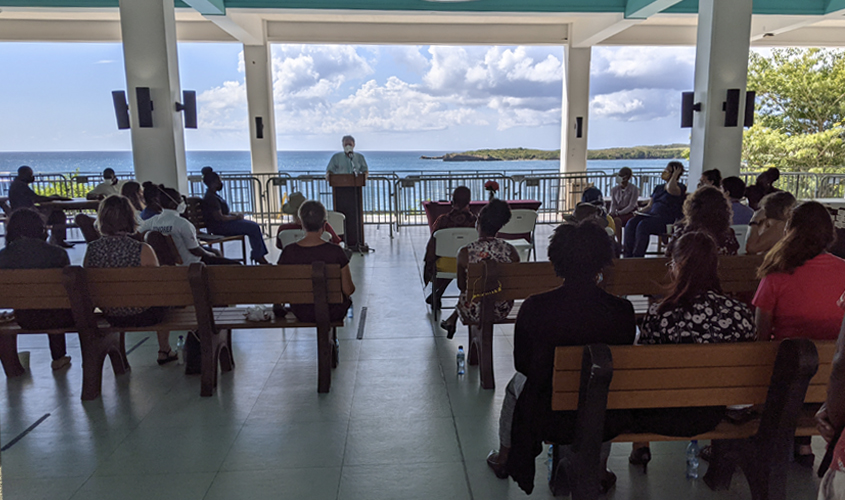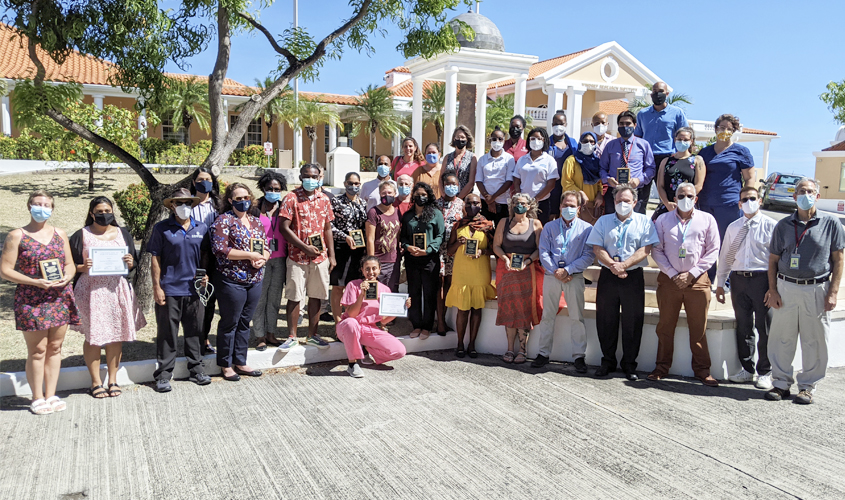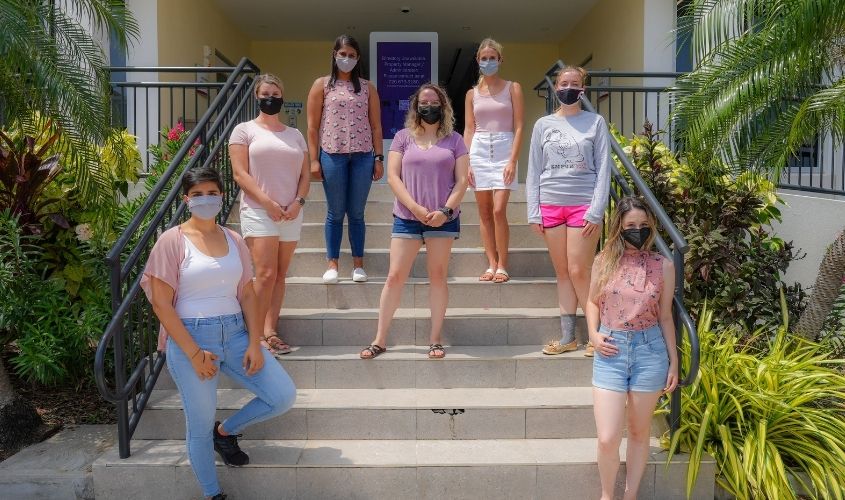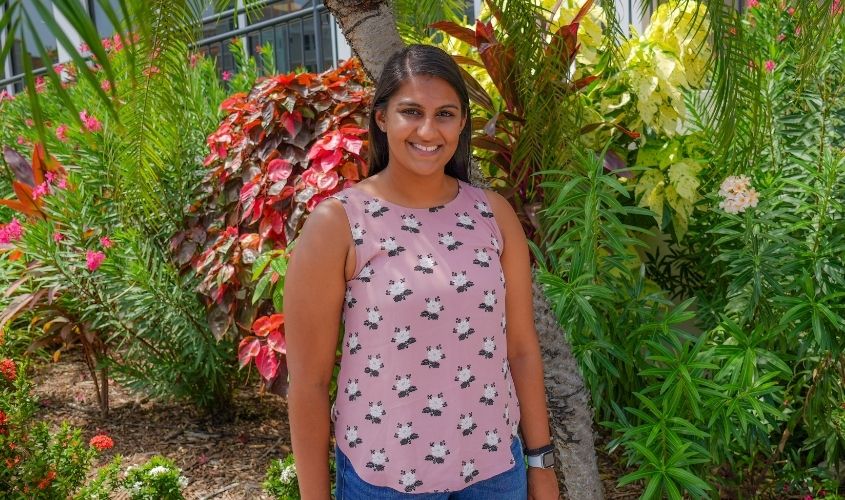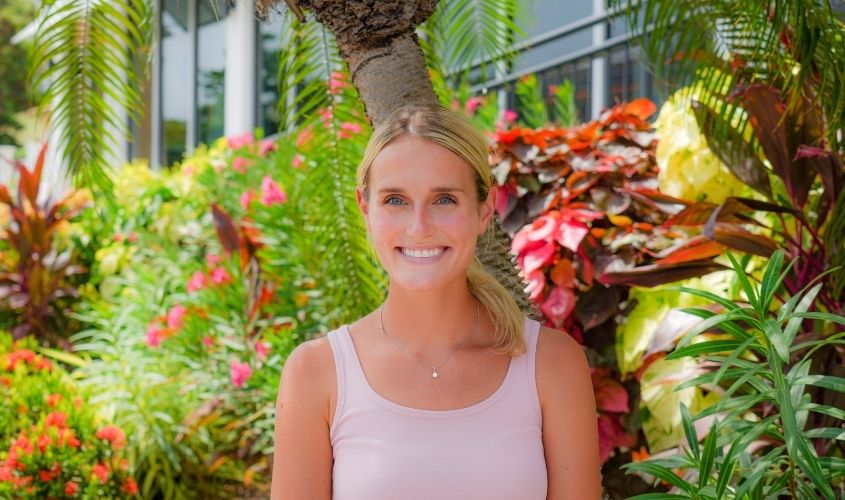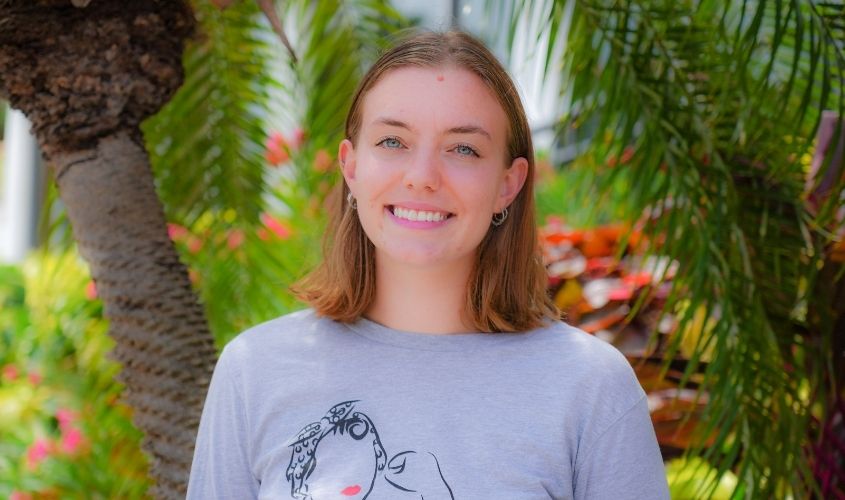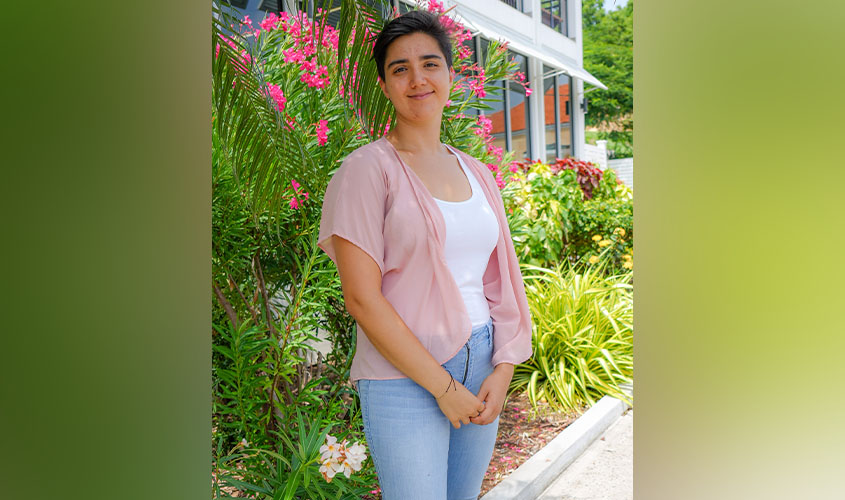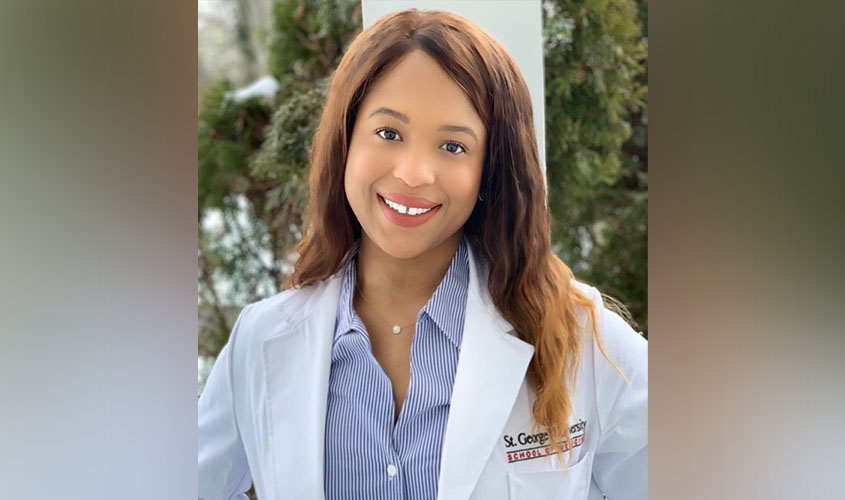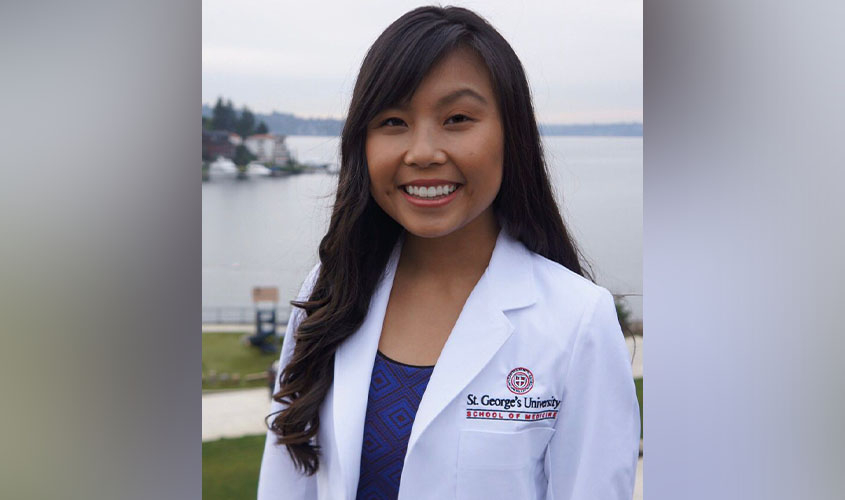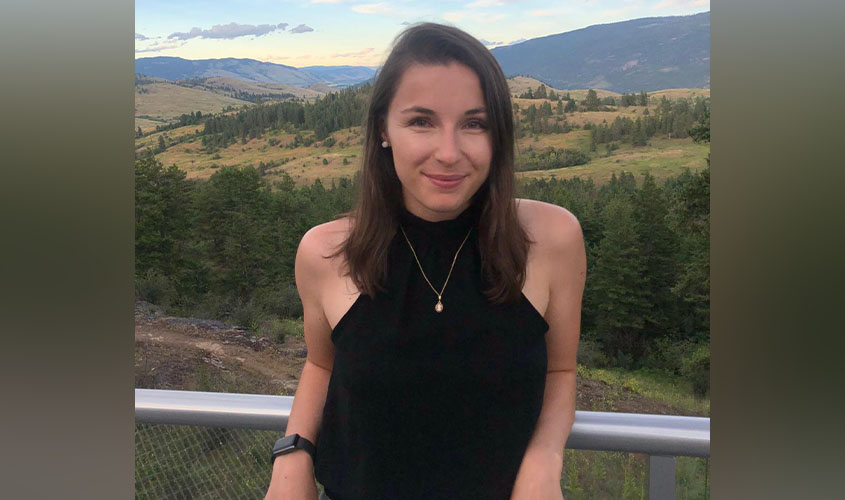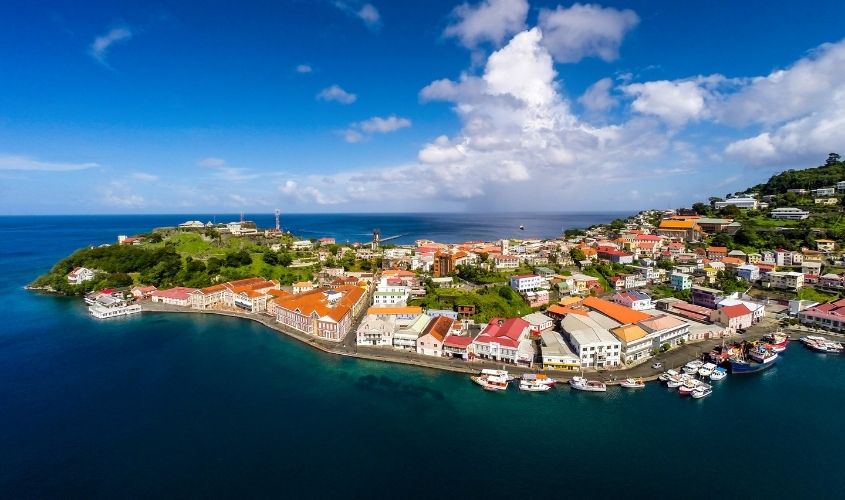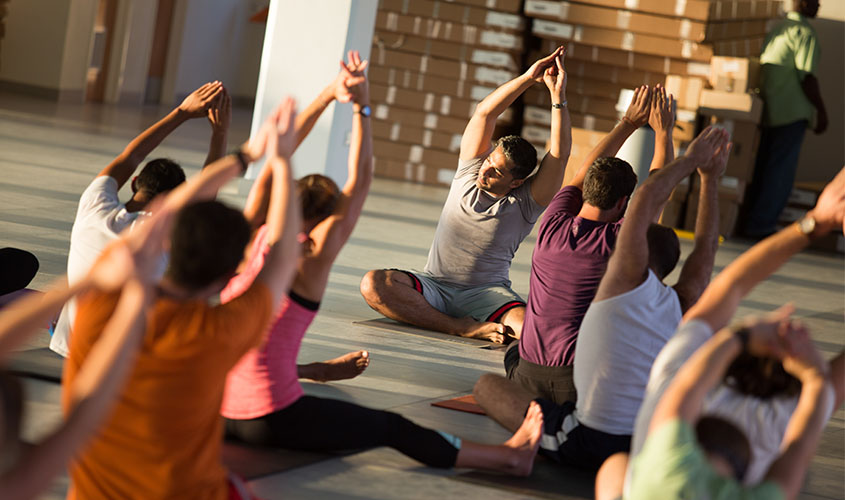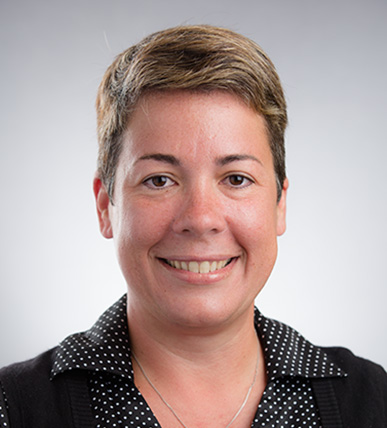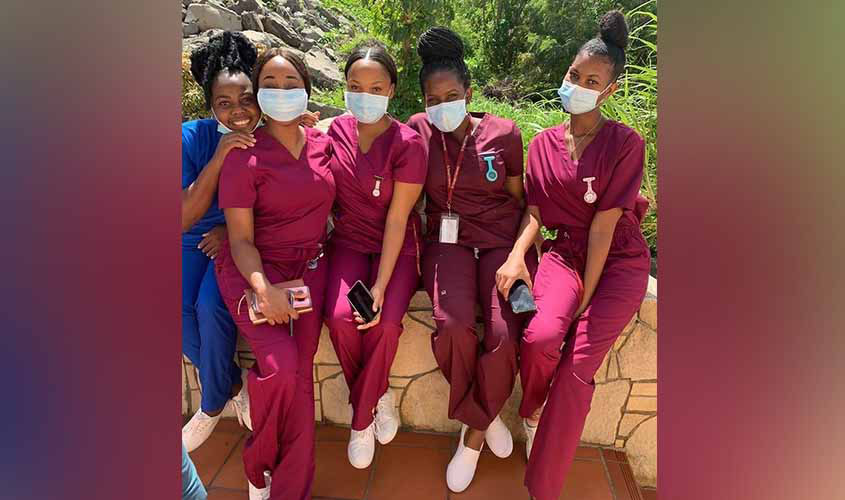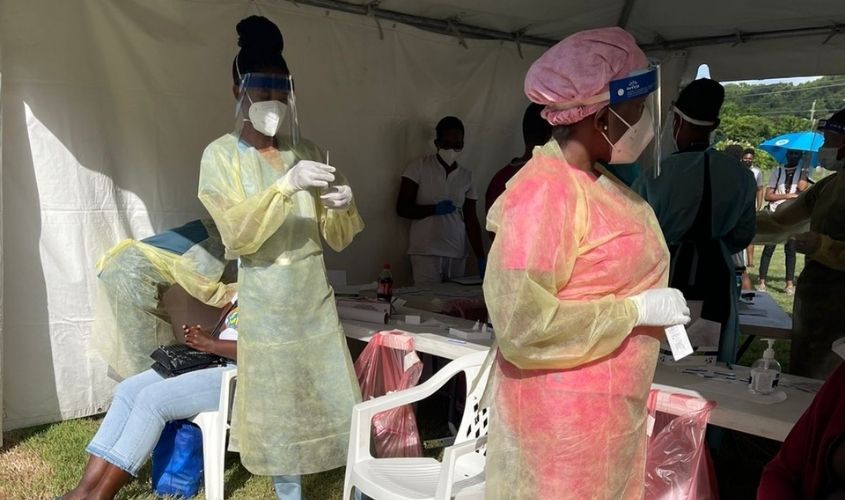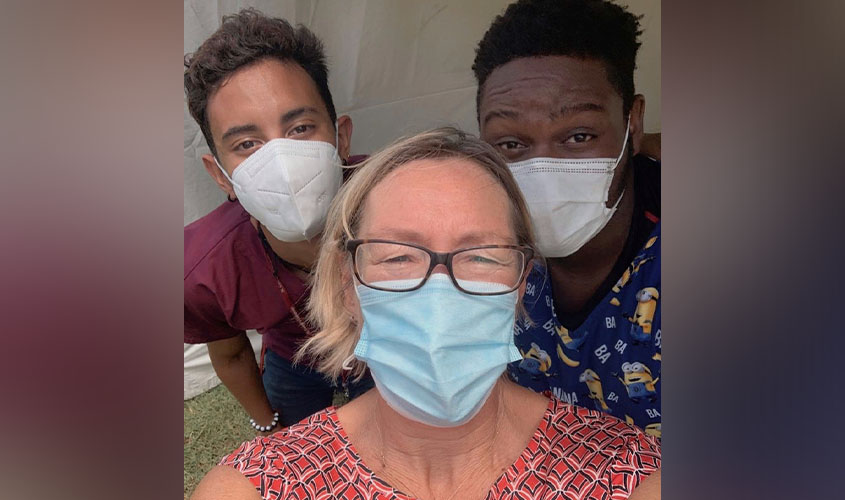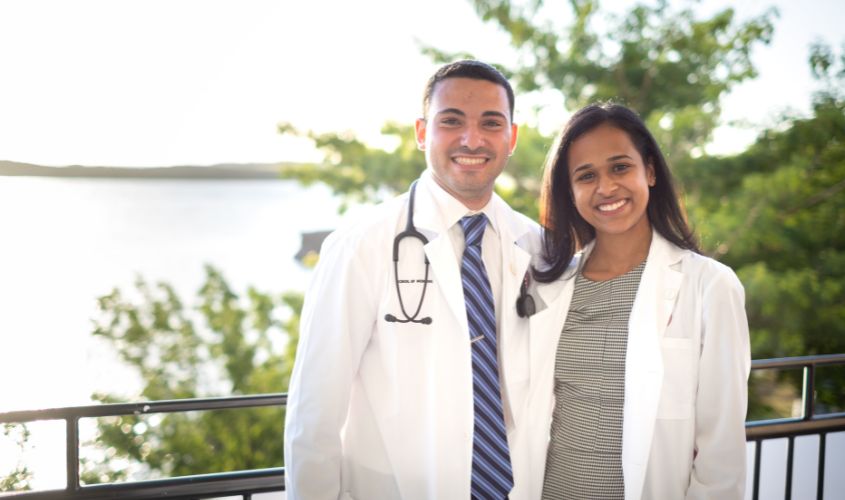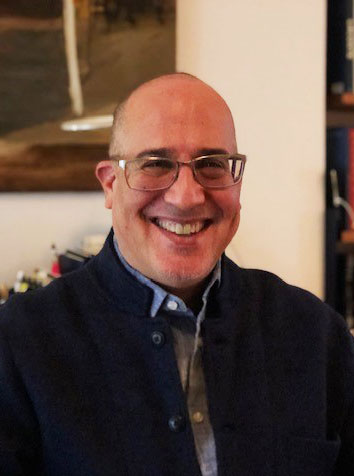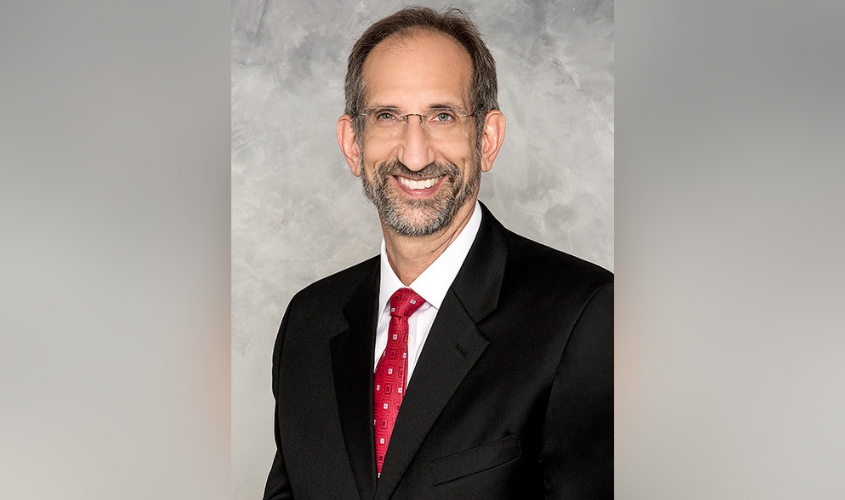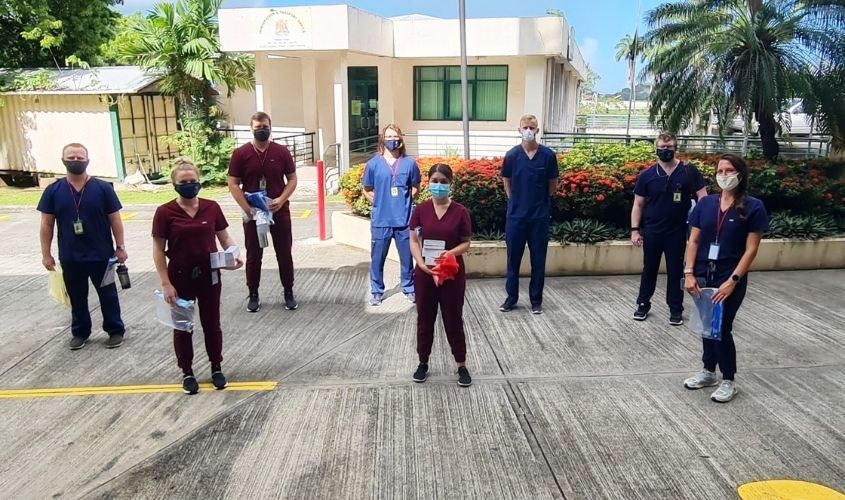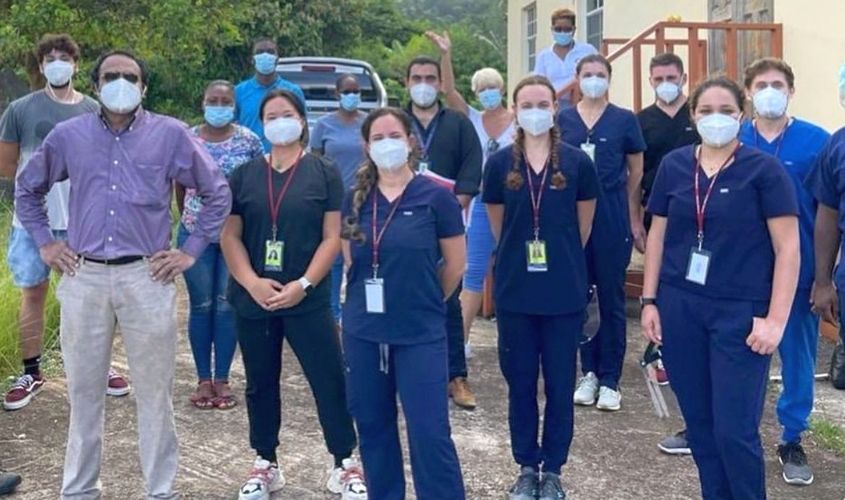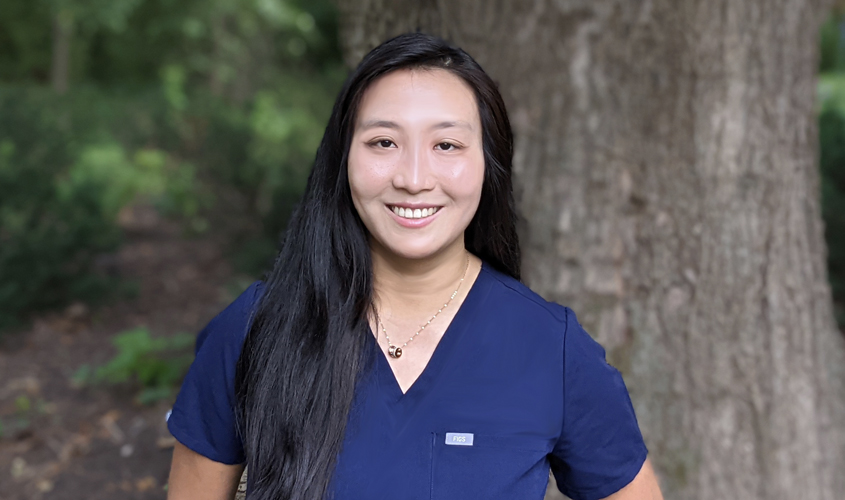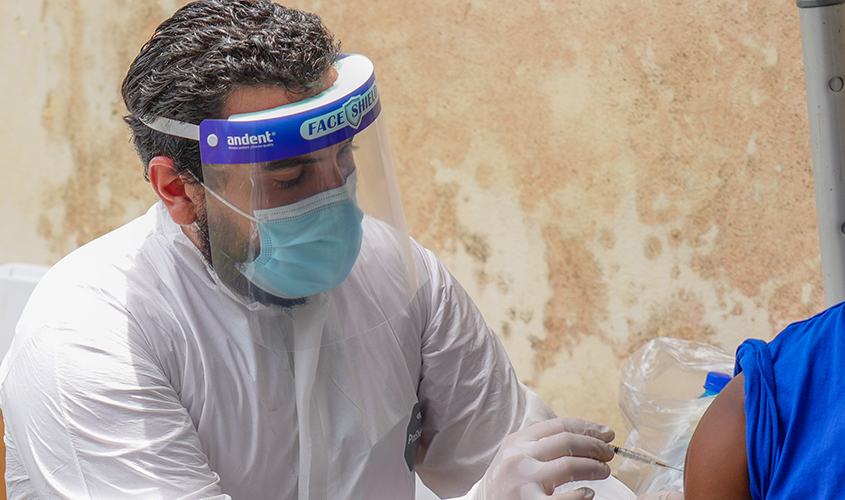
As attempts to mitigate the spread of COVID-19 continues, St. George’s University remains a trusted ally to the Government of Grenada, with several SGU faculty members and students stepping up to volunteer in the Government’s most recent initiative—hosting mobile testing and vaccination clinics throughout the island.
The team of SGU faculty volunteers was comprised of Drs. Nilo Alvarez Toledo, Sharmila Upadhya, Vivek Nuguri, Vajinder Singh, Kesava Mandalaneni, Karl Theodore, Subramanya Upadhya, Anthusia Hortance Pavion, Sheiban Shakeri, Edidiong Udoyen, Clayton Taylor, and Allister Rechea. They worked in close conjunction with the Ministry of Health’s team, including Drs. Carol McIntosh, Tyhiesia Donald, Nicole Forte, Nurse Audrey Lyons, and others, to reach out to the population in the countryside parishes of St. David, St. Patrick, St. Mark, St. John, and St. Andrew.
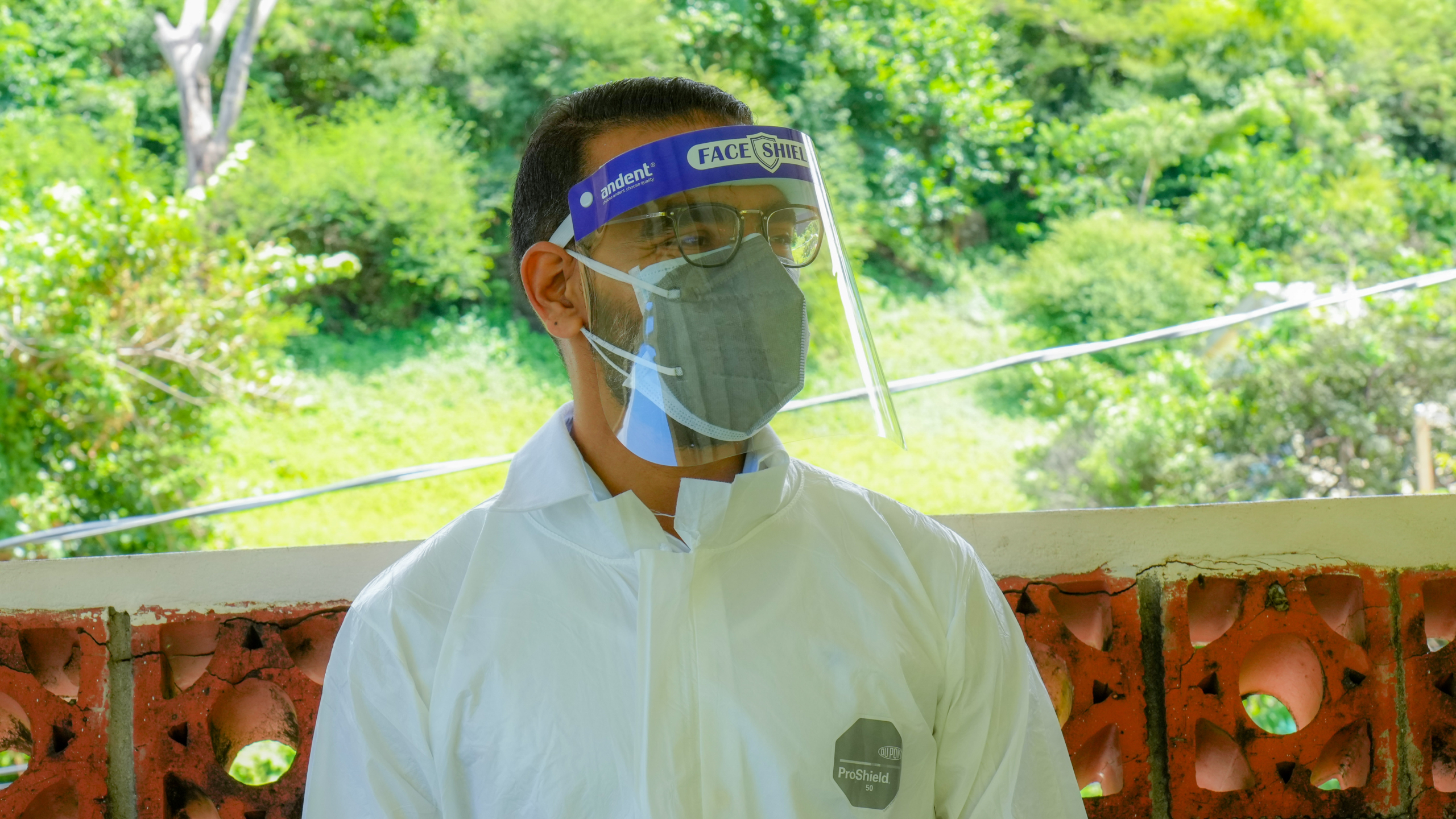
“As a physician, I know firsthand the importance of getting vaccinated,” said Dr. Vajinder Singh, deputy chair in the Department of Pathology at SGU. “With Grenada’s limited healthcare infrastructure and resources, I felt it was my duty to volunteer for the vaccination drive in the hopes that one day soon we can achieve ‘herd immunity.’ Our overall goal here is to reach the most remote parts of Grenada to spread awareness of the importance of getting vaccinated, and to test and vaccinate as many people as we can.”
“We are so proud of these initiatives and all of those who have been in the field to support our beloved host country with all-important testing and vaccinations,” said Dr. Charles Modica, chancellor of SGU. “The country and the citizens of Grenada have supported the University throughout our journey, every step of the way, and we’re glad to have people within our community who can lend a helping hand at this critical time.”
These mobile clinics are considered extremely beneficial in reaching the elderly and the most vulnerable on island, who by themselves would not have been able to go to the hospital or health centers to get vaccinated. The volunteers were able to administer hundreds of vaccines, provide education on the need to get vaccinated, and conduct testing for COVID-19.
“The country and the citizens of Grenada have supported the University throughout our journey, every step of the way, and we’re glad to have people within our community who can lend a helping hand at this critical time.”
“The need of the hour is to vaccinate as many people as possible against COVID-19,” stated Dr. Kesava Mandalaneni, assistant professor of neuroscience in the SOM. “As a proud Grenadian (at heart), and more importantly as a physician, I feel obligated to stand with my brothers and sisters in the healthcare fraternity, who are working tirelessly to contain the effects of COVID-19 in our communities.”
SGU Nursing Students Heed the Call to Volunteer
Also, eager to lend a helping hand were School of Arts and Sciences students in the SGU Nursing Program. In collaboration with the Ministry of Health, the future nurses have been volunteering at health centers across the country, providing Grenada’s healthcare professionals with much-needed assistance, a chance for a break, and camaraderie. As Grenada enters its second week of a two-week restriction of movements on weekends, the nursing students have also volunteered to work at pop-up testing and vaccination clinics in rural villages island wide.
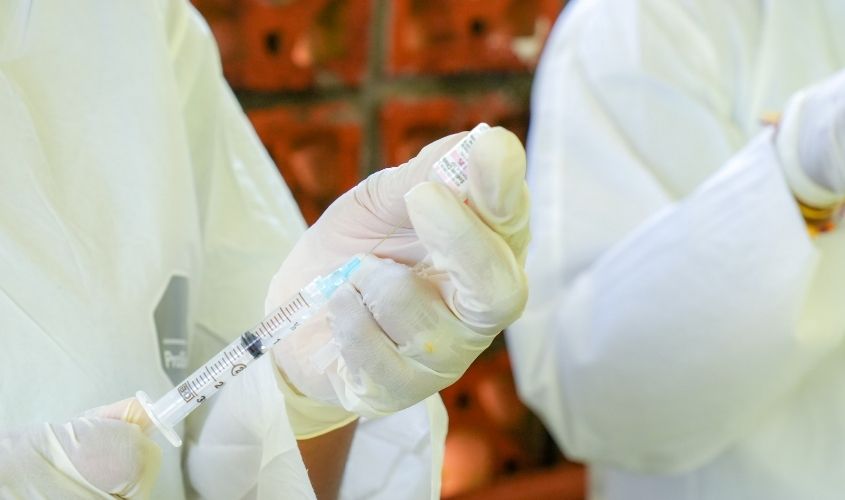
“I choose to volunteer because I heard the call for help and I decided to answer it,” said Kayonna Jones, a second-year nursing student at SGU. “I also believe that volunteering will not only benefit me as a student in gaining hands-on experience working alongside other healthcare professionals in a pandemic, but also my hard work and commitment to educating, testing, and vaccinating will also help to ensure a safe environment for the Grenadian community.”
“The concepts of altruism and selflessness are synonymous with nursing,” said Dr. Jennifer Solomon, chair and director of the Department of Nursing and Allied Health Sciences, SGU. “Many of our students have volunteered, working above and beyond to assist their colleagues, and local communities during the COVID 19 pandemic. Although students, they have the skills that are needed and, under supervision, can meaningfully contribute—giving support to their future colleagues on the front line. At SGU, we have a commitment to provide excellence in education, which in turn translates to excellence in care. I am so humbled and proud of our SGU nursing students.”
SGU and Grenada Partnership
As many countries, including Grenada grapple with the ramifications of the persistent coronavirus pandemic, St. George’s University has reaffirmed its commitment to its host country. From partnering with the Government of Grenada on managing donations to help combat COVID-19, to providing expert advice from its alumni on Grenada broadcast networks, SGU continues to be a loyal partner in helping to limit the spread of the virus.
In close collaboration with the Government, the Caribbean Public Health Agency (CARPHA), the Pan American Health Organization (PAHO), and the Windward Islands Research and Education Foundation (WINDREF), a research and education foundation based at SGU, one of the first diagnostic testing facilities in the Caribbean and was established at the True Blue campus. SGU’s testing site has since become a beacon of excellence for the entire region, with its diagnostic team helping to design and set up the Ministry of Health’s testing site at Grenada General Hospital, including training of lab staff and troubleshooting with initial qPCR lab testing.
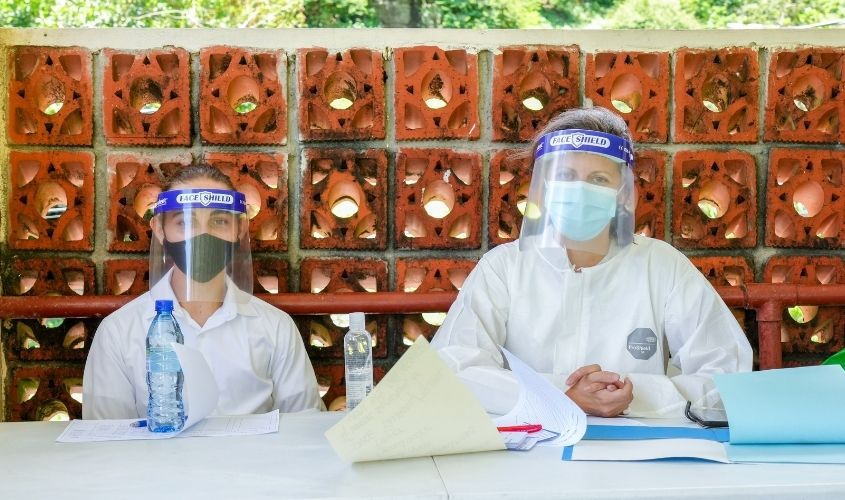
Additionally, responding to the need of the General Hospital, which had just two ventilators, designed to mechanically assist patients with breathing, for the entire population of more than 100,000 people—St. George’s University utilized its international resources to facilitate the acquisition and delivery of 18 additional ventilators.
SGU also secured tens of thousands of pieces of personal protection equipment, ranging from gloves and gowns to goggles and facemasks, for medical personnel as well as members of the community. In addition, the University was able to bring in 18 combination defibrillator monitors, two handheld ultrasound machines, two portable X-ray machines, as well as blood gas analyzers and supplies.
“The people of Grenada, Carriacou, and Petite Martinique are extremely resilient,” added Dr. Mandalaneni. “They have overcome many challenges in the past and will do so once again. With the help from our SGU community, we will all do our part to overcome this challenge together, so that we advance and prosper as one people and one community.”
– Ray-Donna Peters
Related Reading
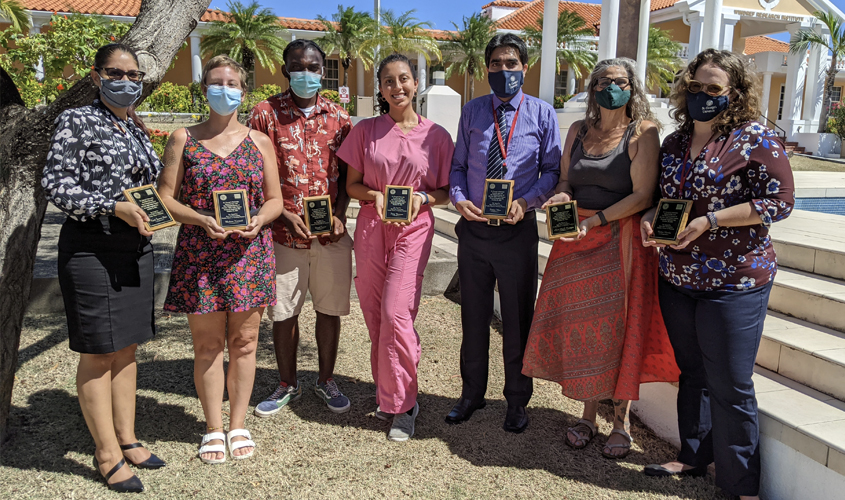 After a two-year hiatus since a record-breaking turnout in 2019, the True Blue campus was once again buzzing with excitement as faculty, students, and local and regional visitors arrived at Open and Upper Modica Hall for the 19th SGU Research Day and Phi Zeta Research Emphasis Day on October 23.
After a two-year hiatus since a record-breaking turnout in 2019, the True Blue campus was once again buzzing with excitement as faculty, students, and local and regional visitors arrived at Open and Upper Modica Hall for the 19th SGU Research Day and Phi Zeta Research Emphasis Day on October 23.